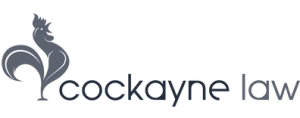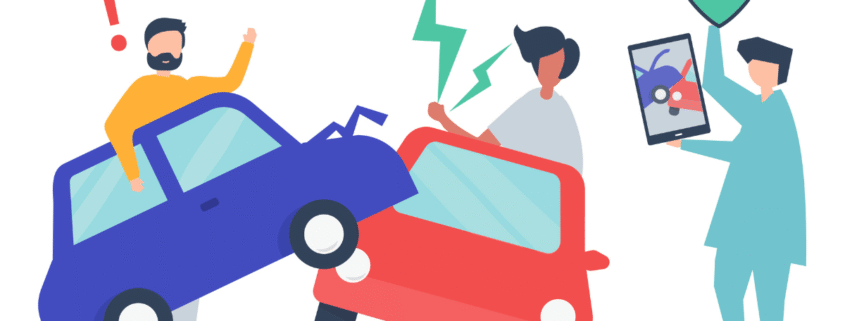Car Accident Insurance in Utah: Coverage, Claims, and Legal Help
A car crash in Utah can ruin a typical day. Survivors typically feel overwhelmed by all the medical care, car repairs, and phone calls they have to make to insurance agencies. This blog tells you how to deal with insurance after an accident, what to write down, and when to get help.
We are going to explain common coverages and what damages you can seek. Also, some practical next steps you can take today to protect your claim. If you’re ever unsure of what to do, calling a local attorney early will help you keep your options open and lower your stress. We have kept this blog simple to read and understand.
Key Takeaway:
- Take photos of vehicles and injuries.
- Preserve medical records and bills.
- Don’t give recorded statements without counsel.
- Keep a crash and symptom diary.
- Get contact details of every witness.
- Notify your insurer but avoid admissions.
- Insurers may offer fast low settlements.
- Seek medical care even for mild pain.
- Speak with an attorney when uncertain.
When Utah Car Insurance Applies: Understanding Coverage Basics
Utah drivers usually carry several types of auto insurance.
The most common are:
- Liability (pays others’ losses when you’re at fault)
- Collision (helps repair your car)
- Uninsured/underinsured motorist
You need to know what coverage you have before you call your insurance company. If another vehicle impacts you, the first thing to check is their liability policy. If the other driver who caused the accident doesn’t have insurance, then there is another option for you. Your uninsured/underinsured motorist policy can help. Your personal collision coverage will pay to fix or replace your car. It doesn’t matter who was at fault, as long as you pay the deductible.
There are also medical-payments or personal injury protection options in some policies that pay immediate medical bills. Read your declarations page, it’s the single-sheet summary listing limits and deductibles. If reading insurance paperwork feels confusing, keep a copy and ask a lawyer or your agent to explain.
The sooner you sort coverage, the faster you can arrange medical care and repairs without guessing who pays what. Simple step: take clear photos, keep receipts, and track names. Documentation makes coverage questions far easier to resolve.
How Fault and No-Fault Rules Shape Your Claim?
In Utah, fault influences who pays and how much. When both drivers share blame, an adjusted award may reflect each person’s percentage of fault. That is, if you were somewhat guilty, your recovery may be reduced by your share. Insurance companies look into accidents to figure out who is at fault and how much they owe.
If you don’t agree with an insurance company’s decision about who was at responsibility, retain your own records. Some photos, dashcam videos, witness statements, and medical reports can all assist your case. Ensure you thoroughly understand the offer before signing anything or accepting a final release. Early payments can come with strings that prevent later claims. If medical care is ongoing, contact your lawyer about accepting a partial payment.
Contested-fault situations
Often, these require more documentation: timeline of events, traffic camera data if available, and independent accident reconstructions in serious cases.
What damages can you get back after a car accident in Utah?
You may be able to get back a number of different kinds of losses after a crash. Economic damages include costs that can be measured, such as medical bills, future therapy, missed wages, car repairs or replacements, and other costs that you have to pay out of your own cash. Non-economic damages cover things like pain, mental discomfort, less pleasure of life, and scars.
Punitive damages may be sought in really bad circumstances when a driver acted in a very careless way. Keep a record of all your costs.
- Repair or total-loss vehicle value.
- Wages lost and reduced earning capacity.
- Medical and therapy costs (now and expected).
- Costs that you have to pay for yourself and for your home.
- Pain, suffering, and mental pain.
If your injuries are going to last a long time, talk to a knowledgeable lawyer to get an idea of how much it may cost in the future. They can get medical professionals to determine future care and lost earning potential. A careful claim ties numbers to records; vague or missing proof weakens recovery. Start collecting documentation immediately. It’s the most practical step toward getting full compensation.
Negotiating with Insurers: Tips to Protect Your Claim
Insurance companies prefer to resolve disputes quickly, therefore they often provide modest initial payouts. That’s normal. Your job is to keep the evidence safe and figure out how much your losses are worth. Send your insurance company the date, location, and police report number to get things started. Provide medical proof of injury but avoid giving long, recorded statements about fault. Keep a record of all calls and offers.
How to respond to low offers?
If the offer seems too tiny, politely say no and inquire how they came up with it. Many adjusters will increase offers after seeing medical progress notes or wage-loss proof.
When to hire help?
A lawyer can negotiate harder, ask for better deals, even launch a lawsuit if necessary. A good personal injury lawyer in Utah knows how to value pain and suffering and future care, which can frequently make a settlement worth more. Avoid signing releases until you’re certain future costs are accounted for. A practical negotiating plan: document everything, be patient, and get legal advice for serious injuries or complex liability.
Hire the Best Car Accident Injury Counsel: Why Local Experience Counts
Finding the right lawyer changes how smoothly a claim moves and how much you might recover. Look for someone experienced with Utah car crash law, strong local medical contacts, and a record of fair settlements or wins at trial. Chris Cockayne and his staff at Cockayne Law specialize in injury claims and are familiar with how Utah insurers operate. A dedicated local firm knows which medical records, bills, and expert opinions matter most to adjusters and juries.
How Utah Statutes and Laws Affect Your Case?
State laws shape how claims are filed and fought. There are rules about how long you have to bring a lawsuit, how fault percentages reduce awards, and what forms of evidence are accepted in court. These legal restrictions can make waiting expensive; if you miss a filing date, your claim could be denied completely. If an insurance company questions how bad your injury is, medical expert testimony is typically important.
Consent and settlements
Some settlements require a signed release; once you sign, you typically cannot reopen the claim later. Before signing, ensure that future medical needs are considered.
Working with experts
Doctors, accident reconstruction experts, and vocational experts help figure out long-term costs and make the case clearer for complicated injuries. A lawyer in Utah who knows the law will know which experts to talk to. And how to present their opinions in a way that works. Getting legal advice early will help you protect your rights and keep deadlines from sneaking up on you because rules can be hard to understand.
Conclusion
After a car crash in Utah, it can be difficult to deal with what happens next. But if you do the right things with the help of an expert, it’s not impossible. Careful insurer communication, timely medical attention, and timely documentation safeguard your recovery.
Stop and seek legal counsel when an insurance company tries to convince you to accept a hurried offer or disputes your fault. An experienced local attorney in Utah can negotiate on your behalf. He can provide you with an accurate assessment of the value of your claim.
FAQs
Is it possible for me to handle a small claim without a lawyer?
Yes, there are times when you can deal with small claims or damage to property on your own. But if you get hurt, can’t agree on who is to blame, or don’t get a good enough offer, you should talk to a lawyer. Getting legal advice usually leads to a more fair settlement.
What damages can I claim after a Utah crash?
You can get money back for things that cost you money (like medical bills, missed pay, and repairs) and things that don’t cost you money (like pain and emotional pain). In bad situations, this could mean needing care in the future and being able to make less money.
Can I accept a quick settlement offer?
Be cautious. Quick offers can be low and may not account for future treatment. Before signing anything, talk to a lawyer about any early offer to make sure you don’t lose future payments.









